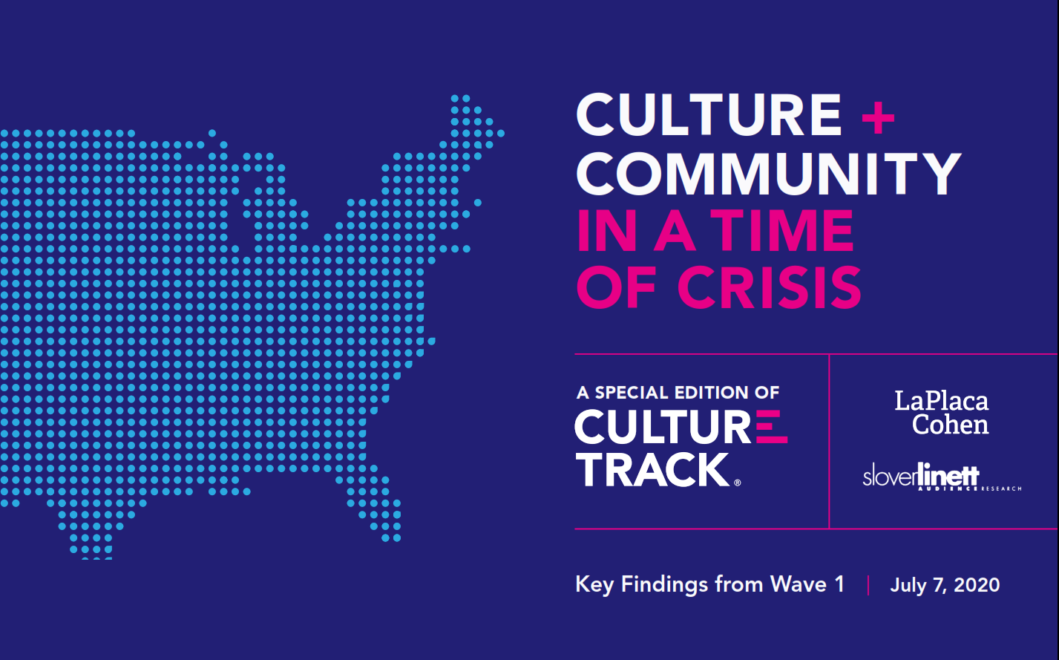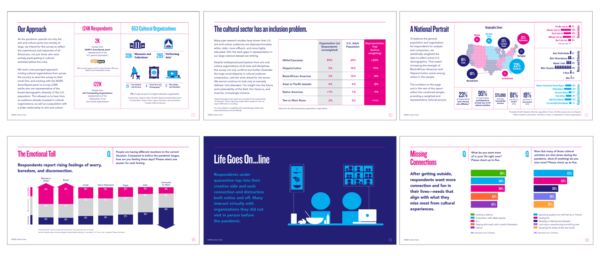News & Notes
Read our new report — A national portrait of arts and museum audiences during the crisis
As you probably know, we’ve been working for several months on a national social research project called “Culture & Community in a Time of Crisis: A Special Edition of Culture Track.” Your arts organization or museum may be one of the 650+ cultural nonprofits that sent survey invitations to their audience lists (thank you!).
This morning, we’re proud to share the first report from this initiative, Key Findings from Wave 1. Click here to read or download the report, which is free and open-source on the Culture Track site.
The research is intended to help the cultural sector not just restart but rethink and seize the opportunity for real change — which the recent wave of racial-justice protests has made even more urgent. The new report summarizes data from this unprecedentedly large survey of adults across the United States, including a representative-population sample provided by NORC at the University of Chicago and audiences from those organizations’ lists. It includes sections on what people are dealing with during COVID, what they need more of, how they’re connecting with culture digitally, what they’d need in order to feel comfortable returning to in-person arts and museum experiences, and how they might want cultural organizations to change in the future.
We’ll be continuing to analyze this trove of survey data in the coming weeks. Stay tuned for a series of follow-up briefings, the first of which will be about the role of race and ethnicity in people’s relationships to arts & culture organizations.
We’re also diving into a qualitative phase of research, which will amplify voices of BIPOC and other underrepresented communities, and planning Wave 2 of the survey. Most importantly, we’ll be broadening our collaboration to include a brilliant, big-picture partner who focuses on transformation and equity, so this research can be a tool for even broader system-level change. (More on that soon! And if you missed our recent post about the role of cultural organizations in social change, check it out here.)
None of this would be possible without the generosity and thought-partnership of The Wallace Foundation and Barr Foundation, our two lead funders, along with the Terra Foundation for American Art and Art Bridges. Equally critical has been the generosity of Zlatko Vucetic and his team at FocusVision on behalf of the U.S. museum and arts sector; we couldn’t imagine conducting his complex, large-scale research without their Decipher online survey platform.
We’re also grateful to the folks at Microsoft, who have been supporting this project by working with us to develop a data-exploration tool, which will allow participating cultural organizations to compare their audiences’ survey responses to the national picture in various ways.
Please let us know what you think of the new report, and we hope you’ll share the link with your networks. Meanwhile, we wish you the best with everything you’re working on.


